第96章 AT FUTUNA, RECRUITING(2)
deyse all afraid dey won't get 'nough."
Unpleasant as the job was to all of us, it had to be done; so we armed ourselves with ropes'-ends, which we flourished threateningly, avoiding where possible any actual blows.Many sprang overboard at once, finding their way ashore or to their canoes as best they could.The majority, however, had to swim, for we now noticed that, either in haste or from carelessness, they had in most cases omitted to fasten their canoes securely when coming alongside, so that many of them were now far out to sea.The distance to shore being under three miles, that mattered little, as far as their personal safety was concerned.
This summary treatment was eminently successful, quiet being rapidly restored, so that Tui was able to select a dozen men, who he declared were the best in the islands for our purpose.
Although it seems somewhat premature to say so, the general conduct of the successful candidates was so good as to justify Tui fully in his eulogium.Perhaps his presence had something to do with it?
We now had all that we came for, so that we were anxious to be off.But it was a job to get rid of the visitors still remaining on board.They stowed themselves away in all manner of corners, in some cases ludicrously inadequate as hiding-places, and it was not until we were nearly five miles from the land that the last of them plunged into the sea and struck out for home.It was very queer.Ignorant of our destination, of what would be required of them; leaving a land of ease and plenty for a certainty of short commons and hard work, without preparation or farewells, I do not think I ever heard of such a strange thing before.Had their home been famine or plague-stricken, they could not have evinced greater eagerness to leave it, or to face the great unknown.
As we drew farther off the island the wind freshened, until we had a good, whole-sail breeze blustering behind us, the old ship making, with her usual generous fuss, a tremendous rate of seven knots an hour.Our course was shaped for the southward, towards the Bay of Islands, New Zealand.In that favourite haunt of the South-seaman we were to wood and water, find letters from home (those who had one), and prepare for the stormy south.
Obviously the first thing to be done for our new shipmates was to clothe them.When they arrived on board, all, with the single exception of Tui, were furnished only with a "maro" of "tapa,"scanty in its proportions, but still enough to wrap round their loins.But when they were accepted for the vacant positions on board, they cast off even the slight apology for clothing which they had worn, flinging the poor rags to their retreating and rejected compatriots.Thus they were strutting about, in native majesty unclad, which, of course, could not be endured among even so unconventional a crowd as we were.So they were mustered aft, and, to their extravagant delight, a complete rig-out was handed to each of them, accompanied by graphic instructions how to dress themselves.Very queer they looked when dressed, but queerer still not long afterwards, when some of them, galled by the unaccustomed restraint of the trousers, were seen prowling about with shirts tied round their waists by the sleeves, and pants twisted turban-wise about their heads.Tui was called, and requested to inform them that they must dress properly, after the fashion of the white man, for that any impromptu improvements upon our method of clothes-wearing could not be permitted.As they were gentle, tractable fellows, they readily obeyed, and, though they must have suffered considerably, there were no further grounds for complaint on the score of dress.
It has been already noticed that they were Roman Catholics--all except Tui, who from his superior mental elevation looked down upon their beliefs with calm contempt, although really a greater heathen than any of them had ever been.It was quite pathetic to see how earnestly they endeavoured to maintain the form of worship to which they had been accustomed, though how they managed without their priest, I could not find out.Every evening they had prayers together, accompanied by many crossings and genuflexions, and wound up by the singing of a hymn in such queer Latin that it was almost unrecognizable.After much wondering I did manage to make out "O Salutaris Hostia!" and "Tantum Ergo," but not until their queer pronunciation of consonants had become familiar.Some of the hymns were in their own tongue, only one of which I call now remember.Phonetically, it ran thus--"Mah-lee-ah, Kollyeea leekee;
Obselloh mo mallamah.
Alofah, keea ma toh;
Fah na oh, Mah lah ee ah"--
which I understood to be a native rendering of "O Stella Maris!"It was sung to the well-known "Processional" in good time, and on that account, I suppose, fixed itself in my memory.
Whenever any of them were ordered aloft, they never failed to cross themselves before taking to the rigging, as if impressed with a sense of their chance of not returning again in safety.
To me was given the congenial task of teaching them the duties required, and I am bound to admit that they were willing, biddable, and cheerful learners.Another amiable trait in their characters was especially noticeable: they always held everything in common.No matter how small the portion received by any one, it was scrupulously shared with the others who lacked, and this subdivision was often carried to ludicrous lengths.